
Vannevar Bush was an American engineer, inventor and science administrator, who during World War II headed the U.S. Office of Scientific Research and Development (OSRD), through which almost all wartime military R&D was carried out, including important developments in radar and the initiation and early administration of the Manhattan Project. He emphasized the importance of scientific research to national security and economic well-being, and was chiefly responsible for the movement that led to the creation of the National Science Foundation.

The National Medal of Science is an honor bestowed by the President of the United States to individuals in science and engineering who have made important contributions to the advancement of knowledge in the fields of behavioral and social sciences, biology, chemistry, engineering, mathematics and physics. The twelve member presidential Committee on the National Medal of Science is responsible for selecting award recipients and is administered by the National Science Foundation (NSF).

The National Science Foundation (NSF) is an independent agency of the United States federal government that supports fundamental research and education in all the non-medical fields of science and engineering. Its medical counterpart is the National Institutes of Health. With an annual budget of about $9.9 billion, the NSF funds approximately 25% of all federally supported basic research conducted by the United States' colleges and universities. In some fields, such as mathematics, computer science, economics, and the social sciences, the NSF is the major source of federal backing.
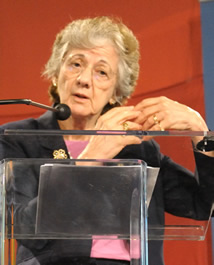
Rita Rossi Colwell is an American environmental microbiologist and scientific administrator. Colwell holds degrees in bacteriology, genetics, and oceanography and studies infectious diseases. Colwell is the founder and Chair of CosmosID, a bioinformatics company. From 1998 to 2004, she was the 11th Director and 1st female Director of the National Science Foundation. She has served on the board of directors of EcoHealth Alliance since 2012.

Norman Ralph "Norm" Augustine is a U.S. aerospace businessman who served as United States Under Secretary of the Army from 1975 to 1977. Augustine served as chairman and CEO of the Lockheed Martin Corporation. He was chairman of the Review of United States Human Space Flight Plans Committee.

Arden Lee Bement Jr. is an American engineer and scientist and has served in executive positions in government, industry and academia.
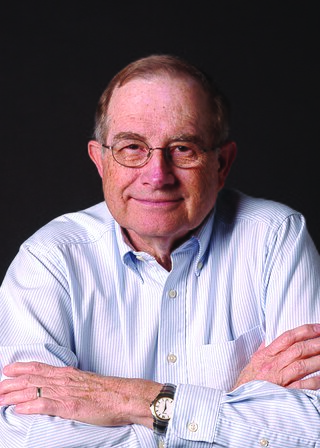
Cornelius Francis "Neal" Lane, is an American physicist and senior fellow in science and technology policy at Rice University's Baker Institute for Public Policy and Malcolm Gillis University Professor Emeritus of Physics and Astronomy Emeritus at Rice University in Houston, Texas.

The President's Council of Advisors on Science and Technology (PCAST) is a council, chartered in each administration with a broad mandate to advise the president of the United States on science and technology. The current PCAST was established by Executive Order 13226 on September 30, 2001, by George W. Bush, was re-chartered by Barack Obama's April 21, 2010, Executive Order 13539, by Donald Trump's October 22, 2019, Executive Order 13895, and by Joe Biden's February 1, 2021, Executive Order 14007.

The National Science and Technology Council (NSTC) is a council in the Executive Branch of the United States. It is designed to coordinate science and technology policy across the branches of federal government.
The United States National Academy of Sciences' Board on Science, Technology, and Economic Policy (STEP) is a board of the United States National Academy of Sciences.

Annie Antón is an academic and researcher in the fields of computer science, mathematical logic, and bioinformatics.
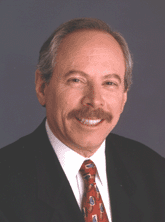
Alan Leshner is an American psychologist who served as director of the National Institute on Drug Abuse, and the National Institute of Mental Health, has held senior positions at the National Science Foundation and the American Association for the Advancement of Science, and serves on the National Science Board.

Subra Suresh is an Indian-born American engineer, materials scientist, and academic leader. He is currently Professor at Large at Brown University and Vannevar Bush Professor of Engineering Emeritus at the Massachusetts Institute of Technology (MIT). He was Dean of the School of Engineering at MIT from 2007 to 2010 before being appointed as Director of the National Science Foundation (NSF) by Barack Obama, where he served from 2010 to 2013. He was the president of Carnegie Mellon University (CMU) from 2013 to 2017. Between 2018 and 2022, he was the fourth President of Singapore's Nanyang Technological University (NTU), where he was also the inaugural Distinguished University Professor.

Louis John Lanzerotti is an American physicist. He is a Distinguished Research Professor of physics in the Center for Solar-Terrestrial Research at New Jersey Institute of Technology (NJIT) in Newark, New Jersey.
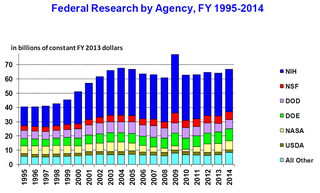
The science policy of the United States is the responsibility of many organizations throughout the federal government. Much of the large-scale policy is made through the legislative budget process of enacting the yearly federal budget, although there are other legislative issues that directly involve science, such as energy policy, climate change, and stem cell research. Further decisions are made by the various federal agencies which spend the funds allocated by Congress, either on in-house research or by granting funds to outside organizations and researchers.

Sethuraman Panchanathan is an Indian–American computer scientist and academic administrator, and, since June 2020, the 15th Director of National Science Foundation.

Homer Alfred Neal was an American particle physicist and a distinguished professor at the University of Michigan. Neal was president of the American Physical Society in 2016. He was also a board member of Ford Motor Company, a council member of the National Museum of African American History and Culture, and a director of the Richard Lounsbery Foundation. Neal was the interim President of the University of Michigan in 1996. Neal's research group works as part of the ATLAS experiment hosted at CERN in Geneva.

Ashanti Johnson is an American geochemist and chemical oceanographer. She is the first African American to earn a doctoral degree in oceanography from Texas A&M University.

Willie Pearson Jr. is an American sociologist, who has studied and encouraged the participation of African-Americans and other minorities, as well as women, in science. He has published several books on the experience of African-American scientists with PhDs, including major studies on chemists and engineers. Pearson has had a leading role in many activities and policy development roles in relation to the participation of minorities and women in science, including chairing the Committee on Equal Opportunities in Science and Engineering (CEOSE), a congressionally mandated committee at the National Science Foundation (NSF). He served on the U.S. president's Board of Advisors on Historically Black Colleges and Universities.
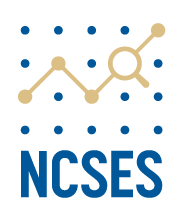
The National Center for Science and Engineering Statistics (NCSES) is one of the thirteen principal statistical agencies of the United States and is tasked with providing objective data on the status of the science and engineering enterprise in the U.S. and other countries. NCSES sponsors or co-sponsors data collection on 15 surveys and produces two key publications: Science and Engineering Indicators, and Women, Minorities, and Persons with Disabilities in Science and Engineering. Though policy-neutral, the data and reports produced by NCSES are used by policymakers when making policy decisions regarding STEM education and research funding in the U.S.



















